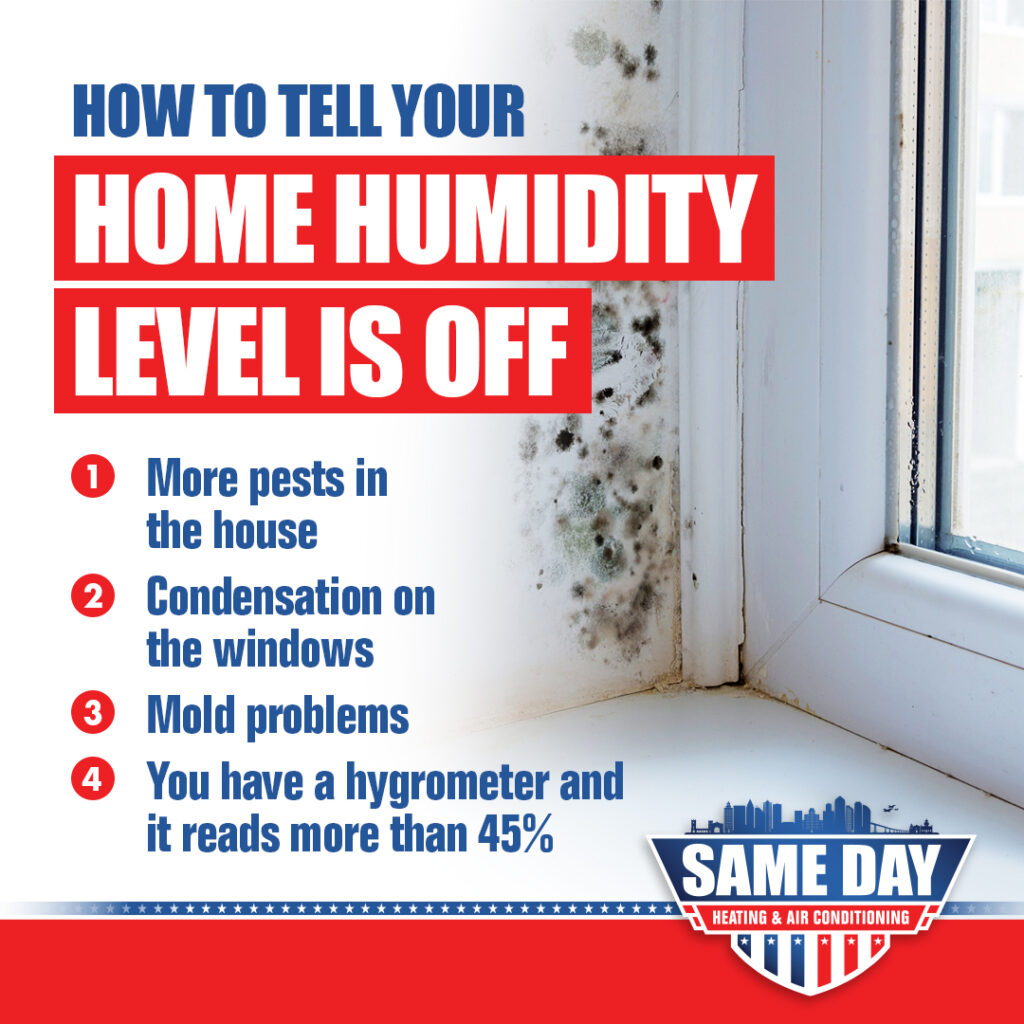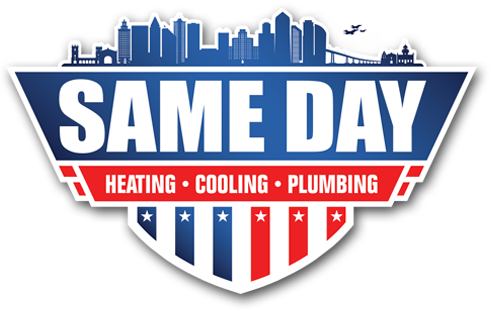Home Humidity Issues In The Summer
The peak of summer heat can occur between late August and early September. Some U.S. regions are already starting to experience the hottest temperatures of the year. With these extreme temperatures comes issues related to increased humidity, especially in homes. Humidity at home during the summer can have some unappealing, and potentially damaging, side affects for your home. Let’s take a look at what makes it that way in the first place, so we can explore the ways you can work to mitigate it.

How Can I Tell If My House Is Humid?
To prevent mold and maintain a comfortable environment in your home, the ideal home humidity level is between 35 and 45%, on average. If you’re noticing more pests at home, have condensation on the windows, or mold problems, there’s a good chance your home has higher humidity that it should. You can find out the levels of humidity in your home by using a measurement tool called a hygrometer, or you can always ask your HVAC professional during your next servicing appointment.
Why Is My House So Humid In The Summer?
As temperatures rise, so does the air’s capacity to hold moisture. This is why the summer heat can often feel muggy, and also why you might notice a change in your home’s overall moisture levels. Air Conditioners are one of the biggest influencers in home humidity — when running correctly, they can help to regulate home humidity, but if your unit is too big or too small for the space, or hasn’t been properly maintained, you can run into problems with excess humidity inside as a result. Ventilation may also be contributing to the problem of an overly humid house, which is something your HVAC professional should be able to evaluate.
Benefits Of Good Home Humidity Levels
High humidity inside your home can cause a range of problems, from personal discomfort to serious mold problems, both superficially and at the structural level of your home. Humid air can exacerbate allergies, asthma, and breathing issues. If mold is resulting from the humidity, you may be looking at additional complications from toxic mold and mildew, which can make you sick.
Humidity can also adversely impact your major appliances, causing them to run poorly or inefficiently, and in some cases contributing to early burnout.
Here are some other issues caused by high indoor humidity levels:
- Dust mites
- Poor quality of sleep
- Wilted plants
- Smelly plants
- Doors and windows stick
- Peeling paint or wallpaper
There are several ways top manage high humidity during the summer months to leave your home feeling cool and comfortable!
How Can I Lower Humidity In My House?
An air conditioner is one of the best defenses against home humidity in the summer, provided it is the right size for the space and is maintained properly. A certified HVAC specialist can help you determine if your unit is too large, or too small, or what type of maintenance may need to be done if you’re having humidity problems along with central air.
After air conditioning, a dehumidifier may be the second-best method to remove moisture from the air in your home.
You can also try changing your behaviors to reduce the causes of excess humidity – like long, hot showers, running the dryer frequently, lots of stove-top cooking, and keeping a lot of plants in one location of the house. Running fans is always recommended when cooking and showering, since the added circulation will help to spread out the humid air.
Want to learn more about home humidity levels, or have your home tested to see where you stand? Our professionals are happy to help with questions, servicing, and much more, call (619) 762-30144 to schedule your appointment.
